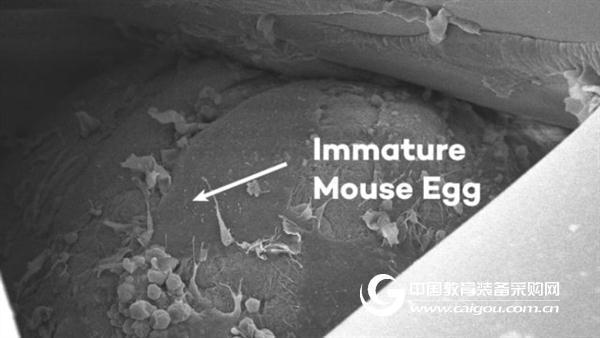Guide
About 10% of cancer survivors are women under the age of 40. Once they receive chemoradiotherapy, they are more likely to lose their normal fertility. Scientists hope to build "artificial ovaries" to help them re-engage in new life.

At the end of 2017, Professor Christiani Amorim from the University of Leuven, Belgium, led the team to publish the latest results in the Journal of Assisted Reproduction and Genetics, which uses fibrin (from blood clot scaffolds) as a matrix and guarantees fibrinogen. The balance with thrombin builds the artificial ovary closest to the natural state.
“The artificial ovary is the 'house' that breeds follicles, and our goal is to rebuild the conditions of survival that are appropriate for follicular development,†explains Christiani Amorim.
Why do you need an artificial ovary?
To help women with cancer, scientists try to protect the ovaries during treatment – ​​move them outside the radiant area, or cut them to cryopreservation in vitro (waiting for cancer treatment and then moving into the body). According to a paper published by the Marie-Madeleine Dolmans team at the University of Leuven, more than 100 infants born worldwide rely on cryopreservation and ovarian transplantation.
However, freezing and transplanting ovaries are not suitable for all people, such as cancer metastasis patients, children patients. Therefore, several research groups hope to develop ovarian prostheses instead of natural ovaries. Studies have shown that the use of artificially synthesized organs can restore the ovarian function of mice.
The team of materials scientist Ariella Shikanov from the University of Michigan proposed a treatment idea: extracting follicles from cancer patients before the onset of anticancer treatment, eliminating the risk of canceration and cryopreservation of follicles. Once the patient enters "cancer-free" and is in the reproductive age, they thaw the previously frozen follicles, inject them into the artificial ovaries, and transplant them into the patient.
Other achievements in the field
The Mary Zelinski team at Oregon Health and Science University is experimenting with a challenge: accurately calculating the placement of artificial ovaries to ensure their hormone secretion and fertility, and to monitor fetal health data in real time after transplantation.
To date, the Mary Zelinski team has successfully demonstrated on the rhesus monkey model that artificial ovaries transplanted to the arm can function as normal hormones. Moreover, egg cells derived from artificial ovaries can successfully produce healthy little monkeys. In September last year, they published an article in the Journal of Assisted Reproduction and Genetics, confirming that monkeys undergoing artificial ovarian transplantation were able to have normal pregnancy without signs of premature aging.

Artificial mouse ovaries can support the normal ovulation of mice and give birth to healthy young rats.
Teresa Woodruff, a maternity specialist from the University of Northwestern University's Feinberg School of Medicine, believes that the biggest challenge now is to build a strong, stable and durable ovary that can last for 10 years or even longer. To achieve this, they used a "biological 3D printing" technology to construct a three-dimensional ovarian scaffold that successfully regained the opportunity for normal ovulation, conception, and childbirth. This 3D printed version of the ovary is mainly composed of collagen, elastin, growth factors and other bioactive agents.
Other application potential
The Amorim team's newly constructed ovarian material is derived from the body's natural materials and is more conducive to clinical applications. They hope to build a perfect artificial ovary that is comparable in stiffness, structure and function to the natural ovaries.
In addition to helping cancer women, artificial ovaries have great potential for application: for drug toxicology analysis, delaying birth time, helping older women continue to secrete hormones to prevent menopause, heart disease, osteoporosis, etc., for transgender people Natural hormone secretion system.
Shanghai Chuangsai Technology has excellent performance, interleukin cytokines, fetal bovine serum, electrophoresis equipment scientific instruments, raw material drug standards, chemical reagents, cell culture consumables, Shanghai Chuangsai, mass products special promotions, welcome to inquire!
Extremely Flexible Pvc Suction Hose
Flexible Pipe,Flex Hose,Vinyl Tubing,Flexible Radiator Hose
YIYANG PLASTIC PRODUCTS CO., LTD , https://www.yiyang-hose.com